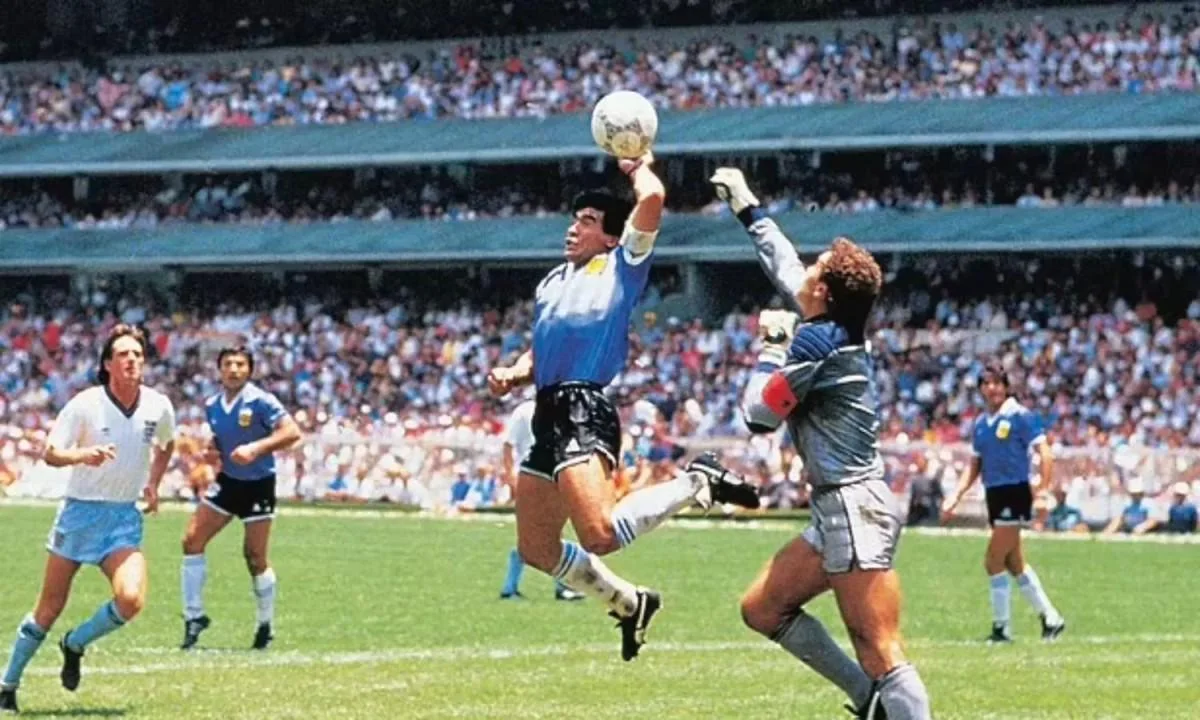amicitaacademy.com – Diego Maradona, one of the greatest footballers of all time, is remembered not only for his incredible skills on the pitch but also for a controversial moment that has become a defining symbol of his legacy: the “Hand of God.” This iconic incident occurred during the 1986 FIFA World Cup quarter-final match between Argentina and England, forever etching Maradona’s name into the annals of sports history.
1. The Context of the Match
The match took place on June 22, 1986, at the Azteca Stadium in Mexico City. Argentina and England were fierce rivals, and tensions ran high following the Falklands War just a few years prior. The stakes were enormous as both teams aimed for a place in the World Cup semi-finals. The atmosphere was electric, with fans eagerly anticipating a showdown between two footballing powerhouses.
2. The Infamous Goal
In the 51st minute of the match, Maradona found himself in a tense situation near the England goal. As a high ball was played into the box, he leapt to challenge England’s goalkeeper, Peter Shilton. In a controversial move, Maradona used his left hand to punch the ball into the net, scoring the first goal of the match. The goal was allowed to stand despite protests from the English players, who argued that Maradona had handled the ball.
In his post-match interviews, Maradona famously referred to the goal as “a little with the head of Maradona and a little with the hand of God,” coining the term “Hand of God.” This phrase would become synonymous with the incident, illustrating both the genius and the controversy of the play.
3. The Second Goal: A Masterpiece
Just minutes after the “Hand of God,” Maradona showcased his extraordinary talent with another unforgettable goal, often referred to as the “Goal of the Century.” In the 55th minute, Maradona picked up the ball in his own half and embarked on a mesmerizing solo run, dribbling past five England players before slotting the ball into the net. This goal exemplified his exceptional skill, vision, and control, further solidifying his status as a footballing legend.
4. The Aftermath and Legacy
Argentina went on to win the match 2-1 and eventually lifted the World Cup trophy by defeating West Germany in the final. The “Hand of God” goal has since sparked intense debate and discussion about sportsmanship, fairness, and the role of officials in the game.
Maradona’s actions on that day have been both criticized and celebrated. While some view the “Hand of God” as a clever yet controversial act of deception, others see it as a reflection of Maradona’s complex persona—an enigmatic genius capable of both brilliance and controversy.
5. Cultural Impact
The “Hand of God” has transcended the sport itself, becoming a cultural phenomenon. It has been referenced in literature, music, and art, symbolizing not just a pivotal moment in football history but also the broader themes of ambition, morality, and the human experience. The phrase “Hand of God” has become iconic, often used in various contexts beyond football.
Maradona’s legacy, particularly the “Hand of God,” continues to evoke strong emotions among fans and sports commentators. The incident remains a topic of discussion and analysis, showcasing the duality of his talent and the complexity of competitive sports.
Conclusion
The “Hand of God” is a pivotal moment in football history that captures the essence of Diego Maradona’s career: a blend of genius, controversy, and unforgettable moments. This incident, along with his remarkable skills, solidified Maradona’s status as one of the greatest footballers of all time. Whether viewed as a moment of brilliance or a controversial act, the “Hand of God” will forever be linked to Maradona’s legacy, reminding us of the drama and excitement that football brings to millions around the world.

